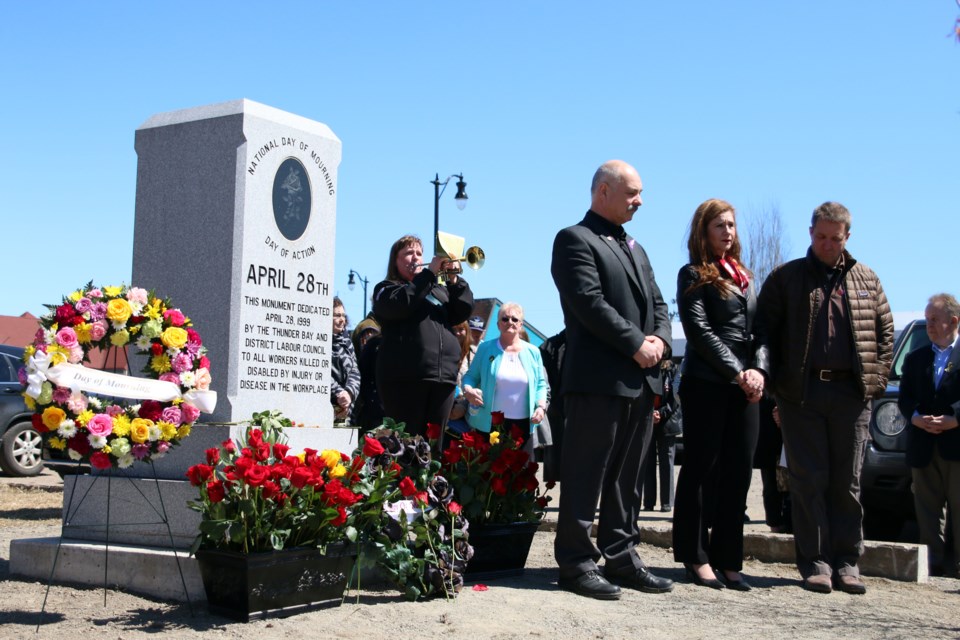THUNDER BAY - For many people, getting up and going to work is just part of a daily routine. But in a blink of an eye that routine can change your life and the lives of the people closest to you.
Workers, union representatives, political leaders, and employers marked the National Day of Mourning on Saturday, remembering workers killed or injured in the workplace and renewing efforts to ensure worker health and safety.
“I think it’s important for the Thunder Bay community to acknowledge and recognize that in the workplace is such a common place,” said Carlos Santander-Maturana, president of the Thunder Bay and District Labour Council. “People go to work every day. In a blink of an eye, as one of the speakers today talked, their life changed forever.”
This year, the National Day of Mourning focused on ending violence and harassment in the workplace, which Santander-Maturana said can have just as significant an impact on a worker as a disabling injury.
“It’s becoming quite clear in Canada that violence and harassment in the workplace is becoming common place,” he said. “Despite efforts coming from unions, there is still plenty of education to take place to ensure workers are going to be protected. In particular, women, who are 52 per cent of the labour market.”
Ceremonies were held across Canada and the ceremony in Thunder Bay honoured four Hydro One workers who were killed in a helicopter crash on Dec. 17, 2017 near Tweed, Ont., as well as six individuals killed in the Humboldt Broncos bush crash who were working in various roles with the team.
“We need government officials, workers, employers to get together to ensure that proper measures are in place to protect workers from loss of life and major injuries,” Santander-Maturana said.
For Mike Lundy, a correctional officer with the Thunder Bay Correctional Centre, not only can years of stress on the job negatively impact an individual, but sometimes one night can change a life.
Lundy was called in the night of the riot at the Thunder Bay District Jail in December 2015. And while he was not directly involved with the incidents taking place on the top floor of the jail that was destroyed during the riot and saw one correctional officer taken hostage, he said he still has nightmares about it.
“What we saw and heard that night, I can’t even imagine what some of my co-workers went through that night,” Lundy said. “My life was definitely changed.”
Lundy added that many first responders and correctional officers face issues of post-traumatic stress disorder, depression, and anxiety, which can have just as much of an impact on a worker and their family as an injury or someone killed on the job.
“They don’t necessarily pass away, but still, their life is changed and altered to a point where they can’t get back to what life meant to them before,” he said. “It makes me reflect on all the people that are suffering and makes me reflect on all the heroes that are out there that don’t get enough recognition and all the ones who suffer in silence and ultimately succumb to the demons that are fighting.”
As people gathered at the workers memorial outside the Finlandia Hall to lay flowers and wreathes in memory of workers who did come from work, Lundy said for those who are still on the job but continue to face challenges, you are not alone.
“There are resources out there,” he said. “What you are going through is not weakness. Getting help and talking to someone is actually a strength.”
